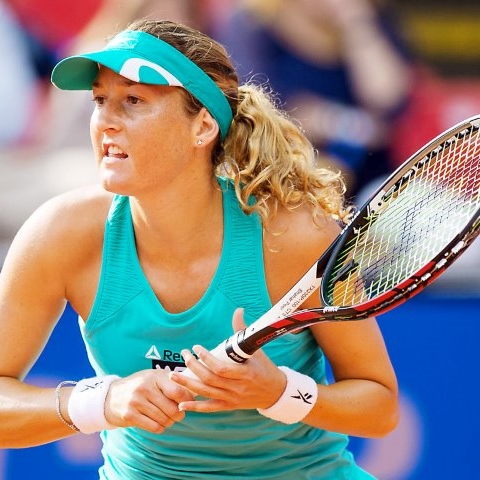
SA

Shahar Peer – a trail-blazer for Israeli sportsmen
JACK MILNER
But more important is that Peer led the charge to change the rules that applied to tennis tournaments. Playing in the Qatar Total Open in 2008, Peer became the first Israeli to compete at a WTA event in an Arab country.
“After me other sports were allowed to go into Abu Dhabi and Dubai,” Peer said. “Before me, it wasn’t even considered.
“I really broke the barriers. From now on there is no way a player from anywhere around the world would not be able to play in any tournaments. That was huge.”
In 2009 Peer was denied a visa to play the Dubai Duty Free Tennis Championships due to “security concerns”. She was on the way to the airport in Pattaya when she received the news that she would not be allowed on the flight to Dubai.
Peer refused to take the snub lying down and that forced the WTA to change the rule, ensuring that no player on the tour can be denied a visa to enter the country. If it was denied, the tournament would be moved elsewhere.
When the situation arose again a year later, Peer was granted a visa to play in Dubai, becoming the first Israeli woman to compete in the United Arab Emirates. With heavy security surrounding an outer court, she rallied from 2-5 down in the third set to beat Yanina Wickmayer in the first round and went on to make the semifinals, losing to Venus Williams.
“That was the first time ever I cried after winning a match,” Peer said. “Just understanding what I had done after the year they banned me in 2009. I came there with so much security. It was a crazy operation. I made the semifinals, but winning this match – it was more than a tennis match.
“It started because I just wanted to play this tournament and then it became political. I’m happy it happened because otherwise things would look different (today) than what’s happening now.”
As is the trend these days, Peer used social media to announce that she was quitting. “I want to share with you one of the hardest decisions I have had to make in my life,” Peer wrote on Facebook. “After 23 years, in which 13 of those years I was an international professional tennis player, I am retiring.
“I made this decision following a chronic inflammation in my shoulder that had lasted for over two years, and prevents me from competing at the high level that I am used to and expect from myself.
“At the same time, I lost my desire for the game of tennis and the intense way of life I have lived since I was six years old.”
Peer’s father, Dovik, was born in South Africa in 1955. His family went on aliyah when he was six years old. He is a computer software specialist. Shahar began playing tennis along with her brother Shlomi and sister Shani.
Aged 19, Peer did her military service and when not abroad participating in tennis tournaments, she spent her mornings working as an administrative secretary for the Israeli military, and her afternoons practising tennis.
After turning professional in 2004, Peer won five WTA titles and became the first Israeli woman to make the quarterfinals of a Grand Slam, doing it twice in 2007 at the Australian Open and US Open. She also reached the fourth round of the French Open on three occasions and the fourth round of Wimbledon in 2008.
She was a Federation Cup stalwart for Israel, playing 76 matches and compiling a 45-31 record. In 2008 she represented Israel at her first and only Olympic Games in Beijing.
“Representing Israel and representing Jewish people around the world is a big thing. I was honoured to lead the March of the Living with my grandma, who died a year and two months ago. She survived Auschwitz when she was young. To do the March of the Living and walk it with her and my mom was amazing.
“So, all of those things that I got the honour to be a part of, to be there for the Israelis and the Jewish people has been huge. I’m only realising now what I’ve done.”
Peer had not played a match on tour since the 2016 Abierto Monterrey, where she lost in the opening round of qualifying to Viktorija Golubic.




